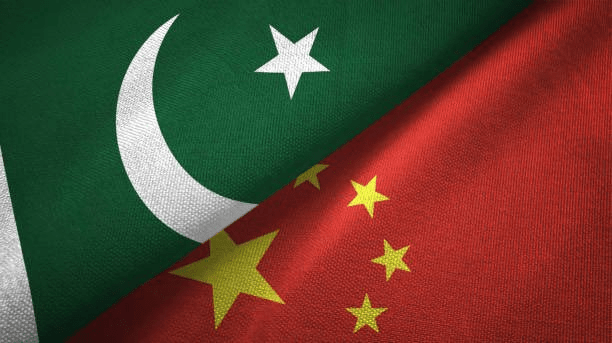Pakistani Prime Minister Imran Khan’s much hyped four day visit last month to Beijing on the sidelines of winter Olympics, turned out to be a complete disaster for the Pakistani establishment. At a time when the Pakistani economy is in complete doldrums and is desperately seeking a $3 billion bailout from China to keep its rapidly sinking economic fleet afloat, Chinese President’s Xi Jinping’s cold shoulder as a response has pushed a desperate Imran Khan further into a tight corner at home.
The recent attack on the headquarters of Frontier Corps by the Baloch insurgents, which coincided with Imran Khan’s China visit, derailed the much anticipated $3 billion economic package linked to stage two of CPEC project. Contrary to the desperate efforts put in by the Pakistani establishment to downplay the incident the facts remain that China has taken a very serious view of deteriorating internal security situation of Pakistan. The attack in Balochistan is a clear sign for the Chinese that their investments in the region are not safe. So the Chinese assessment of a fast destabilising Pakistan has made them hardball PM Imran Khan over the serious emerging scenario.
Pakistan is facing a rapid rise of ethnic insurgency and extremist religiosity within. The events unfolding in Pakistan are akin to the fact that it is fast losing control over its internal security and is also under a severe economic stress. A country which is deeply embedded in global debt and has no resources to pull itself out of near bankruptcy, its further dependence on China has become a cause of concern among the Chinese, who are not confident on placing further big economic bets on Pakistan.
China’s strategic investment in Pakistan is deep rooted in its much ambitious CPEC project. For China the whole of Pakistan is a corridor for its economic expansion in Asia and further beyond in Europe. So it becomes imperative for China that Pakistan stays in absolute control of its internal security. Pakistani establishment which is deeply enmeshed with an Islamist and terror ridden agenda severely undermines China’s basic strategic goals in South Asia.
With the Taliban taking over Afghanistan after the US withdrawal, Pakistan is facing a multi-polar threat. The resurgence of Tehreek-e-Taliban Pakistan (TTP) attacks against Pakistani forces is increasing day by day. It is coupled with the increasing skirmishes with the Taliban forces on Af-Pak border on the issue of the intensely contested Durand line on one end. On the other end, the rise of Baloch insurgency groups stepping up attacks in Balochistan and the surge in extremist Islamist political parties like TLP collate on how ISI devised terrorism as a state policy harboured by Pakistan is now rapidly backfiring.
Back home, Pakistan is scrambling to get things in order. Over the years, its cosmetic treatment towards the home made terror machinery has landed Pakistan into a quagmire. It is still trying to play the same old trick with a hope for a different result. Its capacity to negotiate with the Afghan Taliban has diminished considerably. The Taliban has clearly trumped the Pakistanis by using terror groups like TTP as strategic depth. This has put the Pakistani establishment on a weak wicket against the growing radical forces within the country.
The coming times for Pakistan are going to be tough as it will try to negotiate a lasting peace deal with TTP. It will also have to persuade the increasingly hostile Afghan Taliban to scuttle the ground for Baloch insurgents. Added to that, Pakistan will also try to avoid an imminent showdown between the Afghan Taliban and its forces on the issue of Durand line which the Taliban overwhelmingly disapproves of. These multi-polar threats will not be easy for Pakistan to wade off unless it completely thaws its approach of aiding and abetting terrorism as a state policy.
The unconditional release of over forty TTP prisoners to reign in TTP for peace talks is seen as the first of the mis-steps by Pakistan yet again. Succumbing to the pressure of terror organisations with a hope of buying peace will not only embolden the TTP to blackmail the Pakistani state further, but the Baloch insurgents could also pick up on the cue and raise the graph of violence to subdue Pakistan. It will also encourage a faction of Afghan Taliban to further use terror groups as strategic depth inside Pakistan so as to strike a counterbalance within, especially while dealing with the Quetta Shura, a faction of Taliban backed by ISI.
The chessboard is set with terror outfits trying to outplay the Pakistani state and the Chinese are watching as keen spectators. The future of Sino-Pak relations depend upon whether Pakistan will be able pull itself out of the terror web it has spun around or will it get entangled completely and fall further into instability and radical chaos. The growing irony between the Iron brothers is clearly visible. Will the relationship between the two countries reach a meltdown or will China increase its iron grip on Pakistan will solely depend on Pakistan’s ability to pull itself out of the terror quagmire.
(Raja Muneeb is a freelance columnist and political analyst. His Twitter id is @rajamuneeb)










